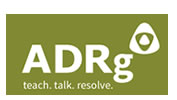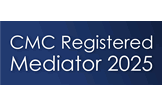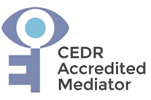
All About People
Need help to resolve your business, personal or employee conflicts & disputes?
Stay up to date with our latest news and workshops.

ACAS’s report 'Estimating the costs of workplace conflict' headlines with "conflict costs the UK £28.5 billion a year". Close to 10 million people experience conflict at work each year, with more than half reporting stress, anxiety or depression as a result. It is also estimated just under 900,000 took time off work, nearly half a million resigned and over 300,000 employees were dismissed.
Conflict happens in every organisation, although we may not always recognise it as such. If conflicts – small or large – are not managed, they can develop into problems that can impact everything from workplace culture, and productivity to brand or organisation reputation. Whilst conflict in the workplace is normal and inevitable, it’s how you handle it that can make the difference.
Our latest research also found that only 29% of people are very confident in their conflict resolution skills, with the remainder of respondents citing gaps in their skills and a need for improvement. So what options are out there:
Conflict coaching is provided by qualified and specifically trained coaches to enable individuals to improve the way they interact with suppliers, clients, intermediaries, and colleagues in order to better understand how to manage and resolve interpersonal workplace disputes.
Conflict coaching can be used to support individuals to:
Watch this space to find out more about our new conflict coaching workshops.
Mediation is an effective form of dispute resolution. It is a stage of help that comes before proceeding with internal grievance and disciplinary processes and aims to avoid stress and complications and the further stage of potential litigation.
There are many reasons why mediation is preferred to arbitration, litigation, or other forms of dispute resolution. The key advantages of mediation are:
To find out more about mediation, and how organisations have leveraged this alternative approach to transform contentious situations into constructive outcomes, join us for our latest webinar: Mediation in the workplace: Towards harmonious resolutions. Whether you're looking to get a practical understanding of mediation, to reduce legal costs, improve employee relations, or foster a more collaborative culture, this session will equip you with actionable techniques to make mediation a go-to resolution method at your company.
Thursday 6th June 2024
1pm – 2pm
Would anyone in your Senior Leadership Team or HR network be interested in an educational session on conflict resolution? Please feel free to pass the invitation on.
If you would like further information, please email geoffrey@allaboutpeople.uk

Strategic Advice and Guidance for you and your organisation. Our accreditations:




Stay up to date with our latest news and workshops.